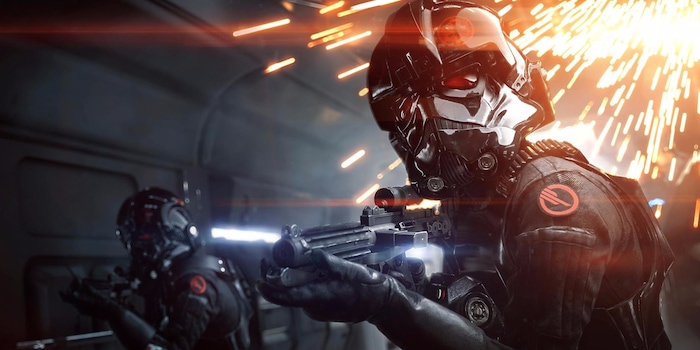
Loot boxes and microtransactions: scams or a necessary evil?
Loot boxes have been one of the most hotly debated topics in recent weeks. At the root of one of the biggest scandals in recent years in the world of gamers: EA, a well-known video game publisher. How did this happen, and what should we expect?
Everything could have gone very well. After the success that EA's first "Star Wars Battlefront" enjoyed, its second instalment looked promising, despite the disappointment of its fans. Season pass removed, real single-player campaign, and more gameplay depth. Yet instead of raising the tension ahead of the release of "Star Wars VIII: The Last Jedi", the publisher unleashed a storm with unexpected consequences.
.
What has sparked outrage among many gamers? The pay-to-win loot box system, and in a full-price game at that. Instead of being able to use upgrades to unlock characters in multiplayer mode, we have to accumulate credits that we use to buy loot boxes. This is the only way to receive random cards and get new powers, weapons or upgrades. Until EA removed this system (early) (in English) a few hours before the game's release, you could still buy the game's currencies with real money. The loot box system and the prices you had to pay to unlock characters like Luke Skywalker were also changed several times before and after the release of "Battlefront 2", but always wrapped in the catchy phrase: "We're listening to what gamers have to say".

I understand EA didn't suddenly change its strategy because of the tidal wave of hate mail it received from fans, but from a call from Disney, the licensee, expressing concern. Disney was far from thrilled to see its valuable brand embroiled in this story. Disney chairman Jimmy Pitaro reportedly contacted EA and demanded emergency action. But the damage had already been done. And worse still, the loot box controversy - which some place in the gambling category - has swelled beyond the world of video games.
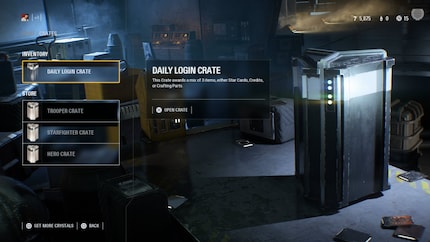
The Belgian Justice Minister Koen Geens is calling for measures to combat the "dangerous association of video games and gambling elements" across Europe. American politicians have also become aware of the problem. Chris Lee, Hawaiian Congressman is not soft towards "Battlefront 2". He describes it as an online casino disguised as a Star Wars game in order to extract money from children. The game has also been compared to Joe Camel, the cigarette salesman. EA and Take Two refute these accusations. Take Two's reaction does not bode well for "Red Dead Redemption 2", which is due for release shortly. The UK Lotteries Commission also considers these accusations to be exaggerated, as loot boxes are only used within the game and cannot be cashed in. This shows on two counts that politicians misunderstand the subject. Not only have loot boxes been around for nearly a decade in video games, and for much longer in other areas, but the loot is cashable.
However, EA is white as snow...
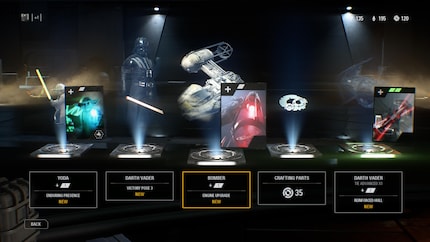
During Credit Suisse's annual technology, media and telecoms conference, EA's CFO Blake Jorgensen said. that the "Stars Wars" canon was responsible for the absence of loot boxes with purely aesthetic functions, i.e. boxes containing items that alter the appearance of characters. The canon describes the material and stories that are officially considered to be an integral part of these fictional universes. Loot boxes with purely aesthetic functions are more accepted by players, as they do not grant any advantage in the game. According to Jorgensen, when you add aesthetic elements, you could be detracting from the canon. "Making Darth Vader wear white clothes doesn't make much sense, let alone the fact that nobody wants to see him in pink." Disney and LucasFilms scrutinise every element published in "Star Wars". We can therefore assume that Disney is scrupulous about what is and isn't published in "Battlefront 2". Unlike Darth Vader in a tutu, letting Luke Skywalker wear all those costumes would have been more faithful to the original saga. We'll probably never know who from Disney, EA or Dice objected.
By the way, where do loot boxes come from?
Many of you gamers are probably smiling, because while the whole world is pointing the finger at loot boxes today, the system has already been around for several years. Some of the most popular examples include "Clash Royal" or "Counter-Strike GO". The Chinese free-to-play game "ZT Online", released in 2007, is a pioneer in this field. This model was first introduced in Asian countries, where purchasing power is generally lower than in Europe. "Puzzle & Dragons", released in 2011, is another notorious example, as it was the first mobile game to rake in a billion dollars in sales.

In the West, it was Zynga that made its mark in this way. Its free Facebook games have conquered the market. Thanks to microtransactions, certain processes could be accelerated, saving players minutes, hours or even days of waiting. But who cared? Real gamers considered these games on Facebook and mobile phones to be child's play. But they weren't spared for long. In 2010, Valve, the company behind Steam, turned the popular multiplayer game "Team Fortress 2" into a free-to-play game. Although it was free to play from then on, it featured "Crates" (chests) that could only be opened by paying keys and which contained only aesthetic items. Given the success of the model, industry insiders quipped that Valve no longer produced any new games, as its developers had become fashion designers.
The free-to-play system is developing a little more every year. Microtransactions and loot boxes are creeping into more and more games and are now commonplace. Entire YouTube channels are dedicated to their opening.
Good examples and bad examples
In themselves, loot boxes and microtransactions are nothing to be ashamed of. They are legitimate means employed by developers to make money. Without free-to-play, mobile telephony wouldn't even exist. But gamers don't want to feel that they're being manipulated or ripped off. In "Call of Duty: WWII", loot boxes fall from the sky for all to see. Points are even awarded for admiring their opening. It borders on coercion. In "Destiny 2", the famous Shaders, with which you can change the style of your equipment, have been transformed into consumer goods that you can buy with real money. How convenient...
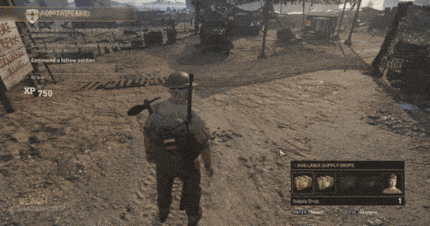
Activision, the publisher of these two games, has just had its patent application approved. The patent encourages microtransactions, in particular by putting you up against players who are better than you and thus encouraging you to buy items that will give you an advantage. The game also notices that you'd like to use a particular type of sniper and assigns you an opponent with experience in this area. But it doesn't stop once you've bought the weapon in question. You could then find yourself in a game where your new weapons are particularly effective. Let's not even imagine what the other possibilities are and which ones are already in use.
The situation also gets tricky when perks can be bought. We're talking about pay to win here, which is also what "Battlefront 2" has been criticised for. In these cases, developers and publishers argue that there are different types of games. Players don't necessarily have the time to unlock them all. Everyone therefore has the option of buying the brand new weapon or doubling their experience points by purchasing them.
Many players tolerate this, as long as the main game remains free. Yet many games cost 60 francs or more and still include microtransactions and loot boxes. Added to this is a paid season pass that gives access to new levels. "Call of Duty was one of the first games to adopt this strategy. New maps brought a much-needed variety, something Activision was well aware of. With DLC, it has once again sent players to the cash register.
All these purchases are voluntary. No one is forced to acquire new costumes or levels. There are plenty of loot boxes and microtransactions. "Overwatch" is a full-price game whose loot boxes contain costumes, emoticons and the like that can also be purchased with in-game currency and offer no benefits. The same applies to the weapon skins in Counter-Strike GO. The free-to-play MOBAs "DOTA 2" and "League of Legends" are almost entirely funded by purely aesthetic accessories.
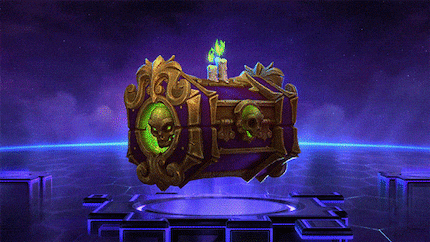
Free-to-play games and loot boxes shouldn't all be lumped together. Many developers, especially mobile developers, rely on this system. People are more likely to try a free game than a paid game, even one with a low price tag. If this system is well thought out, players will happily fork out a few francs from time to time to support the game or buy a new costume.
The line between free-to-play, which is tolerated, and pay-to-win can be blurred, however. Which category does "Hearthstone" fall into? Blizzard's card game is free to play, but players have to get new cards to stand a chance against their opponents. And it's virtually impossible to get new packs of cards for free. You earn them by playing, or by buying them with real money. But you don't know what cards you'll get. You may already have them. At least we know the number of rare cards. "Magic the Gathering also works on this principle. Is this pay to win or outright gambling?
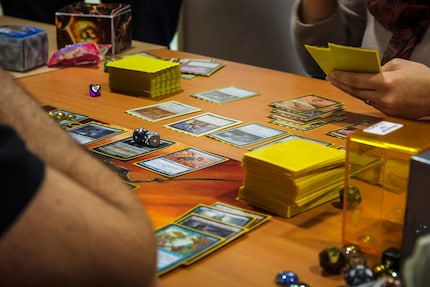
The gambling controversy is all the more explosive because of the need to protect compulsive gamblers (in German). Gambling is strictly regulated, and for good reason.
Changes in development costs and game prices
Loot boxes and microtransactions were not created to fleece gamers. They represent a successful financing model used especially in markets where full-price games struggle to be profitable. They are also used to amortise the high development costs, which are constantly rising in relation to the price of the games. In 1990, an NES game cost an average of $50. Taking inflation into account, that works out at around $95 today. An N64 game cost $70 in 1998, which is now the equivalent of $105. A new PS2 game was worth $60 in the US. Today, it costs $75. In the US, the average price of $60 for a AAA game hasn't changed in years.
The same cannot be said for production costs. At present, it is assumed that a studio employee costs $10,000 a month. This includes the salary and all other costs, such as the workplace or insurance. An average studio of 50 people spends 6 million dollars in a year. Few games are developed in such a short space of time. Costs used to be much lower. Developing a game for the Playstation 2 cost an average of $900,000. The first "Call of Duty" cost $8.5 million to produce. "Modern Warfare 2", released in 2009, cost $50 million, around six times as much.
In the past, games were finished once they were released. Now, patches and updates are often offered months or even years later. Added to this are the costs associated with server infrastructure for online games. All this has to be financed. And yet game prices have remained relatively constant.
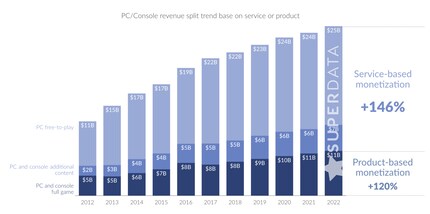
So many companies are going down the "Game as a Service" route. Games such as "Destiny" or "GTA Online" have become platforms on which long-term expansion projects are planned. Even the use of subscription models like Netflix or Spotify is becoming increasingly likely. According to an assessment by SuperData, a company that conducts market analysis (in English), revenue from PC and console games could have risen from $5 billion to $8 billion between 2012 and 2017. Impressive! But if we compare these results with the growth of free-to-play games on PC, we reach another level. Over the same period, revenues rose from $11 billion to $22 billion. Such analyses should certainly not be taken at face value, but the trend is clear nonetheless.
What does the future hold? Regulations, an increase in the price of games?

The consequences of EA's big blunder with "Star Wars Battlefront 2" are hard to predict. If many countries suddenly decide to apply gambling regulations to loots boxes, manufacturers will have to quickly find alternative means of funding. It is possible that game prices will rise, or that companies will move more quickly to the game as a service model. Origin Access and Xbox Game Pass are available subscription systems that could be given a new lease of life. Obviously, manufacturers and shareholders will do everything they can to maintain their sales figures. We can only hope that there will still be fairer models without pay-to-win or other scams. But these systems could just as easily be more discreet and use tricks to fool us. In any case, we always end up spending more than we intended to.
What are your thoughts on the matter? Have you ever bought loot boxes? How do you see the future?
As a child, I wasn't allowed to have any consoles. It was only with the arrival of the family's 486 PC that the magical world of gaming opened up to me. Today, I'm overcompensating accordingly. Only a lack of time and money prevents me from trying out every game there is and decorating my shelf with rare retro consoles.
Interesting facts about products, behind-the-scenes looks at manufacturers and deep-dives on interesting people.
Show all